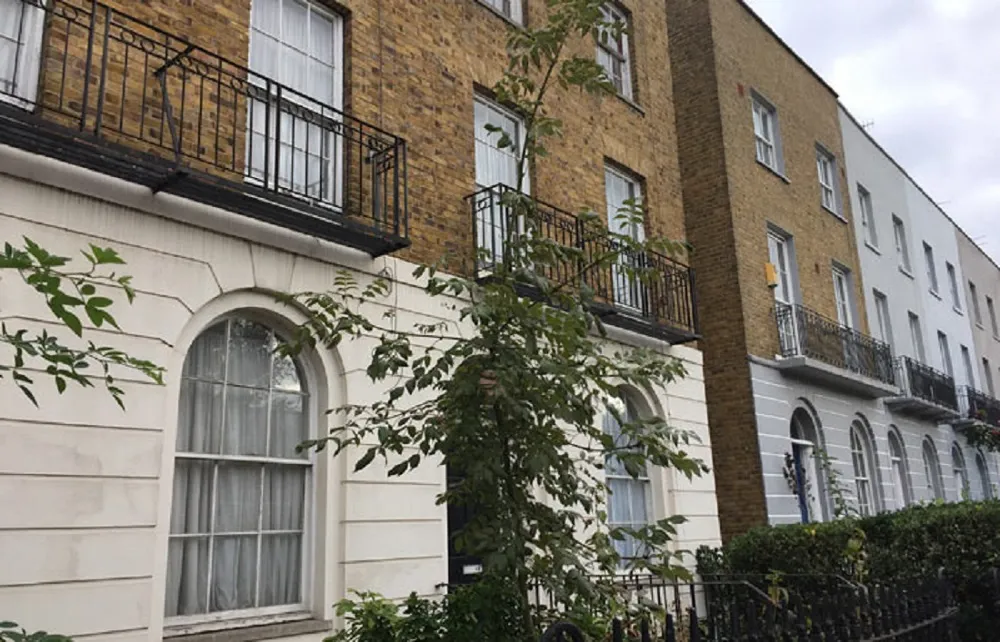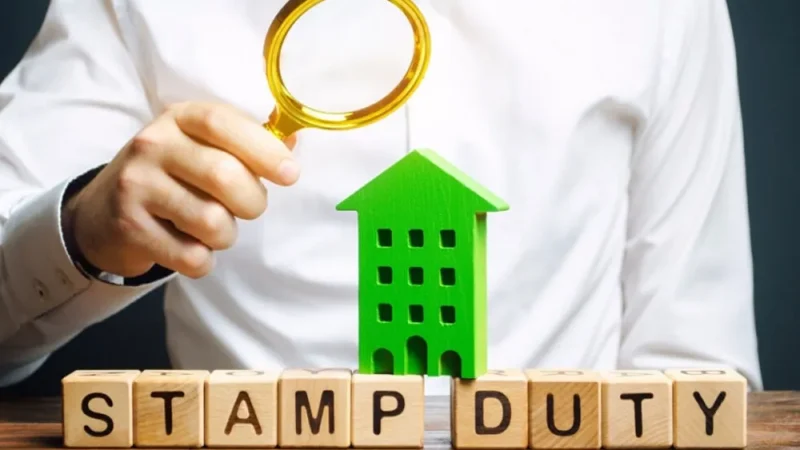How To Start A Rental Property Business In The UK

Table of Contents
ToggleBest way to set up a rental property business
Investing in rental properties can be an excellent venture, offering a steady stream of income and the potential for long-term financial growth. If you’re considering entering the rental property market in the United Kingdom, you’re in the right place. This comprehensive guide will walk you through the essential steps to kickstart your rental property business and set you on the path to becoming a successful landlord.
From understanding the market trends to navigating legalities, property selection, tenant management, and maximizing your return on investment, this guide will equip you with the knowledge you need to make informed decisions and build a profitable rental property portfolio.
Here are the steps on how to start a rental property business in the UK:
Do Your Research
Research and planning are essential steps when starting a rental property business in the UK. Thorough research will help you understand the market, identify opportunities, and make informed decisions. Here’s how to approach this crucial phase:
- Market Research:
- Study the rental market in your chosen location(s). Look into factors like demand, rental rates, vacancy rates, and types of properties in demand (e.g., residential, student housing, vacation rentals).
- Analyze trends in the property market, such as areas experiencing growth or potential areas for investment.
- Define Your Strategy:
- Determine your investment strategy. Will you focus on long-term, short-term, or a mix of both?
- Decide on the properties you want to invest in, such as single-family homes, multi-unit properties, or commercial spaces.
- Financial Planning:
- Create a comprehensive budget that includes property acquisition costs, renovation expenses, property management fees (if applicable), and ongoing maintenance costs.
- Estimate potential rental income and calculate potential returns on investment (ROI) for each property.
- Location Analysis:
- Choose your property’s location based on your target market. Consider factors like proximity to amenities, transportation, schools (if relevant), and local attractions.
- Research the neighborhood’s safety, infrastructure, and potential for appreciation.
- Legal and Regulatory Considerations:
- Understand the legal requirements for renting out properties in the UK. This includes landlord responsibilities, tenant rights, health and safety regulations, and property licensing.
- Familiarize yourself with energy performance certificates (EPCs) regulations, gas and electrical safety checks, and tenant deposits.
- Competition Analysis:
- Identify your competitors in the rental market. Analyze their offerings, rental rates, and property management practices.
- Determine what sets your properties apart and how you can position them to attract tenants.
- Risk Assessment:
- Evaluate potential risks associated with your investment, such as economic downturns, changes in local regulations, or unexpected maintenance expenses.
- Consider strategies to mitigate these risks, such as maintaining a contingency fund.
- Financing Options:
- Explore financing options, such as mortgages, loans, or partnership agreements.
- Calculate the affordability of your investments based on potential rental income and associated expenses.
- Business Plan:
- Compile all your research and strategies into a comprehensive business plan. This document is your roadmap and can be shared with potential investors or lenders.
Effective research and planning will set the foundation for your rental property business’s success. By understanding the market dynamics, legal requirements, and financial implications, you’ll be well-equipped to make informed decisions and navigate the challenges that may arise along the way.
Get the necessary licenses and permits
Yes, getting the necessary licenses and permits is important before you can rent out a property in the UK. The specific licenses and permits you need will vary depending on the area where you’re renting out the property.
Here are some of the most common licenses and permits that you may need:
- Landlord licence:This is required in some areas, such as London. It is a requirement for landlords who rent out properties that are not their main residence.
- House in multiple occupation (HMO) licence:This is required if you rent out a property to 5 or more people who are unrelated to each other.
- Energy Performance Certificate (EPC): This is required for all rental properties in England and Wales. It shows how energy efficient the property is.
- Gas safety certificate: This is required for all rental properties in England and Wales. It shows that the gas appliances in the property are safe to use.
- Electrical safety certificate:This is required for all rental properties in England and Wales. It shows that the electrical wiring in the property is safe to use.
You can find more information about the licenses and permits you need to rent a UK property on the government website.
Here are some tips for getting the necessary licenses and permits:
- Check with your local council to see what licenses and permits you need.
- Apply for the licenses and permits well before renting out the property.
- Make sure you understand the requirements of the licenses and permits.
- Keep the licenses and permits up to date.
By getting the necessary licenses and permits, you can ensure you comply with the law and protect yourself from legal liability.
Find a Property
Here are some of the best websites to find rental properties in the UK:
- Rightmove: Rightmove is the most popular website for finding rental properties in the UK. It has various properties, including flats, houses, and apartments.
- Zoopla: Zoopla is another popular website for finding rental properties in the UK. It has a similar selection of properties to Rightmove.
- OpenRent: OpenRent is a website that allows landlords to list their properties directly to tenants, without using an estate agent. This can often mean lower rent prices.
- Spareroom: Spareroom is a website for finding shared accommodation. This can be a good option if you want a more affordable way to rent a property.
- Gumtree:Gumtree is a general classifieds website with a section for rental properties.
When searching for a property to rent, it’s essential to consider your budget, needs, and preferences. Here are some things to keep in mind:
- Budget: How much can you afford to spend on rent each month?
- Needs: How many bedrooms and bathrooms do you need? Do you need a parking space?
- Preferences:What kind of property are you looking for? Do you want a furnished or unfurnished property? Do you want a property in a certain area?
Once you’ve considered these factors, you can start your search for a property to rent. Read the descriptions carefully and contact the landlord or agent with any questions.
Get a Mortgage
Here are the steps on how to get a mortgage in the UK:
- Find a mortgage lender: There are many different mortgage lenders in the UK, so it’s important to shop around and compare rates. You can find mortgage lenders online, in newspapers, or through word-of-mouth.
- Get pre-approved for a mortgage: This will give you an idea of how much money you can borrow and your monthly payments. It will also make the buying process go more smoothly.
- Find a property: Once pre-approved for a mortgage, you can start looking for a property. There are many ways to find properties, such as online listings, estate agents, and word-of-mouth.
- Make an offer: Once you’ve found a property you like, you need to make an offer to the seller. The seller may accept your offer or they may counteroffer.
- Negotiate the terms:Once the seller has accepted your offer, you need to negotiate the terms of the sale. This includes the price, the deposit, and the closing date.
- Complete the mortgage application:Once you’ve agreed on the terms of the sale, you need to complete the mortgage application. This will involve providing the lender with information about your income, assets, and debts.
- Undergo a credit check: The lender will also conduct a credit check to assess your creditworthiness.
- Get the mortgage offer:Once the lender has approved your mortgage application, they will issue you a mortgage offer. This is a legally binding document that outlines the terms of your mortgage.
- Complete the conveyancing process: The process is the legal process of transferring the property from the seller to you. A solicitor or conveyancer usually handles this.
- Pay the deposit:Once the conveyancing process is complete, you must pay the deposit to the seller.
- Move in:Once the deposit has been paid, you can move into your new home!
Here are some additional tips for getting a mortgage in the UK:
- Get your paperwork in order:Ensure you have all the necessary paperwork before applying for a mortgage. This includes your proof of income, your proof of assets, and your credit report.
- Build your credit score: Your credit score is an important factor in getting a mortgage. You can build your credit score by paying your bills on time and keeping your debt levels low.
- Be prepared to negotiate: The mortgage process can be complicated, so be prepared to negotiate with the lender and the seller.
- Don’t be afraid to ask for help: Many resources are available if you need help getting a mortgage. You can talk to a mortgage broker, a financial advisor, or a friend or family member who has gone through the process before.
Make Necessary Repairs and Renovations
Repairing and renovating a rental property before renting it out is essential. This will ensure that the property is in good condition and meets the legal requirements.
Here are some of the most common repairs and renovations that you may need to make:
- Fix any broken appliances or fixtures. This includes things like the stove, the refrigerator, the washer and dryer, and the light fixtures.
- Patch any holes in the walls or ceilings.This will help to prevent pests and moisture damage.
- Paint the walls and ceilings.This will make the property look more inviting and attractive to tenants.
- Replace any old or worn carpeting.This will improve the comfort and cleanliness of the property.
- Install new flooring. This can add value to the property and make it more attractive to tenants.
- Update the kitchen and bathroom. This includes things like the countertops, the cabinets, and the appliances.
- Add insulation. This will help to keep the property warm in the winter and cool in the summer.
- Install new windows and doors. This will improve the property’s energy efficiency and make it more comfortable for tenants.
The specific repairs and renovations that you need to make will depend on the condition of the property. You may only need minor repairs if the property is in good condition. However, you may need major renovations if the property is in poor condition.
Get estimates from several contractors before you make any repairs or renovations. This will help you get the best price and quality work.
Market the Property
It is important to market your rental property effectively to attract tenants. Here are some tips on how to market your property:
- Take good photos:The first thing potential tenants will see is the photos of your property, so it is important to take good photos that highlight the property’s best features.
- Write a clear and concise description: The description of your property should be clear and concise, and it should highlight the important features to tenants.
- Price the property competitively: The rent price should be competitive with similar properties.
- Use multiple channels: Don’t just rely on one channel to market your property. Use multiple channels, such as online listings, social media, and word-of-mouth.
- Be responsive: When potential tenants contact you, answer their questions promptly.
- Offer a competitive move-in package: This could include free rent for the first month or a rent-free period for tenants who sign a long-term lease.
Following these tips can increase your chances of renting out your property quickly and easily.
Here are some of the most popular channels for marketing rental properties in the UK:
- Online listings: There are many websites where you can list your property, such as Rightmove, Zoopla, and OpenRent.
- Social media: You can also market your property on social media, such as Facebook and Twitter. This can be a good way to reach a wider audience.
- Word-of-mouth: Tell your friends, family, and colleagues about your property. They may know someone who is looking for a rental property.
- Estate agents: You can also hire an estate agent to market your property. This can be a good option if you need more time or the expertise to market your property.
The best channel for marketing your property will depend on your budget, target audience, and preferences. Using a combination of channels, you can reach a wider audience and increase your chances of renting out your property quickly and easily.
Choose the Right Tenants
Choosing the right tenants is one of the most important decisions you will make as a landlord. The wrong tenants can cause you a lot of headaches and financial problems. Here are some tips on how to choose the right tenants:
- Do your research: Before you start screening tenants, it is important to research and understand your area’s rental market. This includes factors such as the demand for rental properties, the average rent prices, and the types of tenants in demand.
- Screen tenants carefully:Once you have found some potential tenants, it is important to screen them carefully. This includes checking their credit history, employment history, and references. You can also run a background check.
- Trust your gut instinct: Sometimes, you know when someone is wrong for your property. If you have a bad feeling about a potential tenant, don’t rent to them.
- Be prepared to say no:It is essential to say no to potential tenants, even if they seem like a good fit. There are many factors to consider when choosing tenants, and it is important to make the decision that is best for you and your property.
Here are some of the things you should look for when screening tenants:
- Good credit history:A good credit history indicates that the tenant is responsible and will pay their rent on time.
- Employed: The tenant should have a steady job and can afford the rent.
- References: Check the tenant’s references to see if they have been reliable tenants.
- No criminal record: A criminal record may indicate the tenant is not a good risk.
- Good communication skills: The tenant should be able to communicate effectively with you and resolve any issues.
By following these tips, you can increase your chances of choosing the right tenants for your property.
Here are some additional tips for choosing the right tenants:
- Meet the tenants in person:It is always a good idea to meet them in person before making a decision. This will allow you to get a feel for them and see if they fit your property well.
- Be clear about your expectations:When you meet with the tenants, be clear. This includes the rent amount, the security deposit, the pet policy, and the rules and regulations of the property.
- Get everything in writing: Once you have chosen tenants, write everything. This includes the tenancy agreement, the security deposit receipt, and the pet policy.
By following these tips, you can avoid any misunderstandings or problems.
Be a Good Landlord
Being a good landlord involves creating a positive and respectful relationship with your tenants while fulfilling your responsibilities as a property owner. Here are some key principles to follow:
- Communication: Maintain open and clear communication with your tenants. Respond promptly to their inquiries, concerns, and maintenance requests. Regularly check in to see if they have any issues or suggestions.
- Respect Privacy: Respect your tenants’ privacy by giving proper notice before entering the property for inspections, repairs, or other reasons as required by law.
- Maintenance and Repairs:Keep the property in good condition. Address maintenance and repair issues promptly. Regularly inspect the property to identify and fix potential problems before escalating.
- Transparency:Be transparent about the lease terms, including rent, security deposit, rules, and policies. Make sure your tenants understand their rights and responsibilities.
- Fair Rent: Set a reasonable and fair rent for the property. Avoid excessive rent hikes during the lease period.
- Security Deposit:Handle security deposits responsibly. Clearly explain the purpose of the deposit, and return it promptly after deducting legitimate expenses, if any, at the end of the tenancy.
- Safety: Ensure the property is safe for occupancy. Install and maintain smoke detectors, carbon monoxide detectors, fire extinguishers, and other safety features as required by law.
- Emergency Contacts:Provide your tenants with emergency contact information for urgent issues that might arise outside of regular business hours.
- Flexibility:Be flexible when possible. Accommodate reasonable requests from tenants, such as changes to lease terms or minor alterations to the property.
- Respect Boundaries: Avoid intruding on your tenants’ personal space or unnecessarily interfering in their lives. Keep a professional distance while maintaining a helpful attitude.
- Documentation:Keep accurate records of all communications, lease agreements, repair requests, and maintenance performed. This will help in case of disputes.
- Renewal Process: If your tenants have been responsible and respectful, consider renewing their lease and maintaining a positive, ongoing relationship.
- Professionalism:Treat your tenants professionally and courteously. Avoid using derogatory language or engaging in aggressive behavior.
- Legal Compliance:Familiarize yourself with local landlord-tenant laws and regulations to ensure you’re meeting all legal requirements.
- Feedback:Ask for feedback from your tenants about their living experience and any suggestions for improvement. This can help you identify areas where you can enhance the rental experience.
By following these principles, you can establish a strong foundation for a positive landlord-tenant relationship and create a welcoming and comfortable environment for your tenants.






